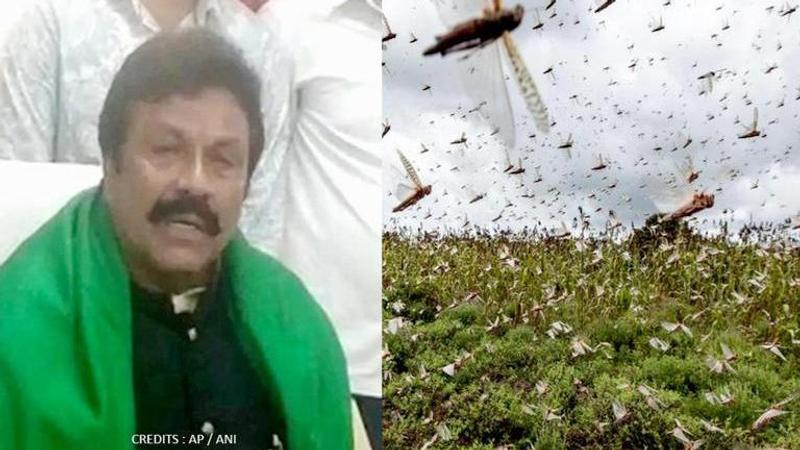Published 20:23 IST, June 1st 2020
Karnataka Agri Min allays fear of locusts, says swarm diverted to other states
Karnataka minister BC Patil sought to allay fear among farmers about locust attacks saying the state will not be affected as the swarm has moved to other states

Karnataka Agriculture Minister BC Patil on Monday sought to allay fear among farmers about locust attacks saying the state will not be affected as the swarm has moved to other states. Large locust swarms have wreaked havoc in several northern and central Indian states and put farmers, already under strain due to the lockdown, on a slippery slope.
"There will be no effect as locust insects diverted to other states after they came from Pakistan. We were also worried that it may reach Bidar, Kalaburagi or Yadagiri and were prepared to face it, luckily we will not be affected by insects," BC Patil said.
Locust threat
Locust attacks have been haunting the farmers of East Africa for months and now it has become a major problem for Indian farmers, especially in the states of Rajasthan, Madhya Pradesh, and Uttar Pradesh. The swarm of locusts travelled to India after breeding and maturing in Iranian provinces and Pakistan’s Balochistan province, devastating farmlands across Rajasthan, UP and MP.
According to the Food and Agriculture Organisation (FAO), the Desert Locust is the most destructive migratory pests in the world and a single square kilometre of the swarm can contain up to 80 million adults, with the capacity to consume the same amount of food in one day as 35,000 people. Large swarms pose a major threat to food security and rural livelihoods and the situation has deteriorated due to favourable climatic conditions, allowing widespread breeding in East Africa, Southwest Asia and the area around the Red Sea.
The Desert Locusts are considered as the most invasive species of locust since it can migrate over large distances and can rapidly breed. In February, Somalia declared a state of emergency due to the locust invasion and the FAO described the situation as worst in the last 25 years. According to a Bloomberg report, farmers in the village of Pakistan's vast and arid Balochistan province have lost crops worth hundreds of thousands of rupees.
Updated 20:23 IST, June 1st 2020




